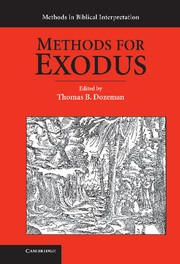Book contents
6 - Postcolonial Biblical Criticism
Published online by Cambridge University Press: 05 June 2012
Summary
Accessible on the Web is a humorous map depicting “The World According to America.” The United States was, of course, at the center of this map. Mexico was a tiny orange splotch, inhabited by “smelly people with big hats.” Red blobs representing Cuba, China, and Russia were labeled “Commies,” with the helpful definition that “Commies are our enemies they must be destroyed.” The whole continent of “Yurop” was reduced to a small island. Latin America and Africa became purple smudges that contained “No civilisation [sic]. People eat each other here.” The Arctic Circle was merely a cold place where Santa lives.
The modern Western empires of Britain, Spain, France, and Portugal regarded the Asian, African, and Latin American colonies that they seized and exploited in similar ways as this map. Postcolonial theorist Edward Said identified the Western representation and so-called knowledge about non-Western countries, for example, “People eat each other here,” as Orientalism. Similar to the distortions and denigrations of Mexico, “Yurop,” and other places in “The World According to America,” non-Western lands, cultures, and peoples were depicted by the West as the inferior Other: ignorant, dangerous, morally corrupt, and savage. Under the pretext of bringing “civilization” to their colonies, Western imperial nations rationalized their brutal conquest and predatory extraction of their colonies' natural and human resources. It is the conflicted unequal relations between colonizer and colonized that are the focus of postcolonial studies as an academic endeavor.
- Type
- Chapter
- Information
- Methods for Exodus , pp. 193 - 234Publisher: Cambridge University PressPrint publication year: 2010
References
- 4
- Cited by

